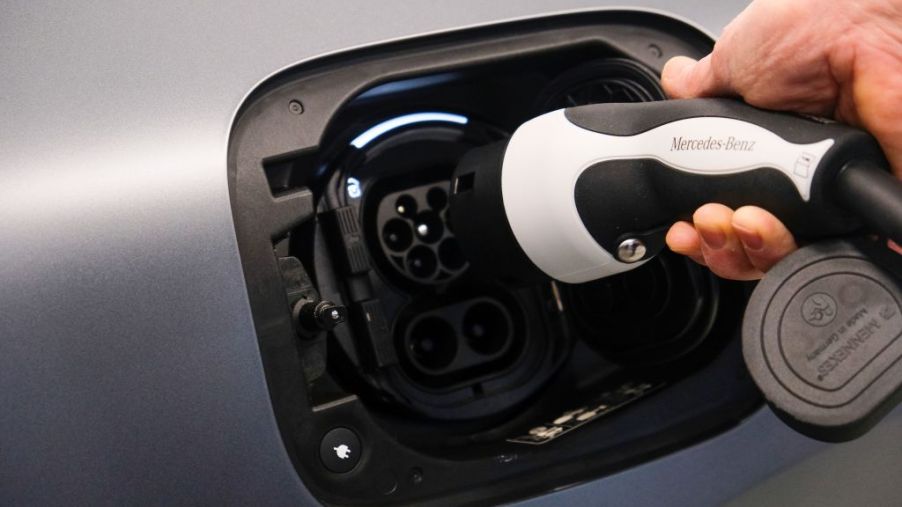
Are the Biggest Fears about Electric Cars Completely Overblown?
This year buyers who want to drive green can choose from a growing array of electric vehicles. From the affordable Nissan Leaf to the pricey Porsche Taycan and all the cars in between, consumers can go electric in nearly every market segment. But consumers who want to transition from a gas-powered vehicle to an electric one may have some serious fears before they take the leap.
We’ll take a look at a survey conducted by AAA that examines these electric car fears and how some buyers felt after they bought their first EV.
The two biggest fears consumers have about owning an electric car
More than 40,000 electric vehicle owners participated in the AAA survey. Of those surveyed, 71% had never owned an EV before. 91% stated that they had at least one significant concern before buying the car. These concerns included inadequate range, a lack of charging locations, and possible difficulties with long-distance travel.
These fears line up with the findings of a previous AAA survey. The two primary reasons why consumers avoid buying electric vehicles are that there are not enough places to charge with 58% reporting, and 57% worry that they will run out of charge while driving.
According to AAA’s Greg Brannon, Director of Automotive Engineering and Industry Relations, range anxiety has been nagging at car buyers since EVs became more commonly available.
How buyers felt after they bought an EV
Once car buyers purchased an electric vehicle, however, those fears were put to rest. Nearly all EV owners (95%) reported never having run out of charge. What’s more, 75% of owners said they charge the vehicles at home.
Importantly, 77% of those who were initially worried about not having enough range they reported being less concerned or not concerned about it after they bought their EV.
Satisfaction among these EV owners is evident because 96% said that they would buy or lease another electric car the next time they needed a new vehicle. 43% said they drive more now than when they owned a gas-powered vehicle. While 78% also own a gas-powered vehicle, they do the bulk of their driving (87%) in the electric vehicle. These owners drive an average of 39 miles a day, according to AAA.
Cost comparison: electric vehicles versus gas-powered cars
As part of this study, AAA also compared operating costs for an electric vehicle versus a gas-powered one. The baseline for the comparison was the electricity needed to drive 15,000 miles in a compact electric car as compared to a gas-powered compact car driving the same distance. The cost for the electric car was $546 while the car with the internal combustion engine cost $1,255 to run.
AAA then looked at comparable costs for maintenance, repairs, and tires between the two types of vehicles. Electric vehicles require less maintenance than gas-powered ones because oil changes and air filter replacements aren’t necessary. If owners follow automakers’ maintenance guidelines, electric cars cost $330 less than gas-powered vehicles, which cost a total of $949 a year, on average.
The electric vehicles AAA compared for the study were the 2019 model years for the Chevrolet Bolt LT, the base model Hyundai Ioniq, the Kia Soul EV+, the Nissan Leaf SV, and the Volkswagen e-Golf SE. The 2019 model year gas-powered cars studied were the Chevrolet Cruze LS, the Honda Civic LX, the Hyundai Elantra SE, the Nissan Sentra SV, and the Toyota Corolla SE.
The AAA survey has revealed that ownership has helped a number of people overcome some of their key fears about electric vehicles. Firsthand experience and gaining a better understanding of how electrification works are proven ways to encourage car buyers to adopt this technology. These factors, along with more affordable electric cars with better ranges being offered, should help to win over more American consumers in the near future.


